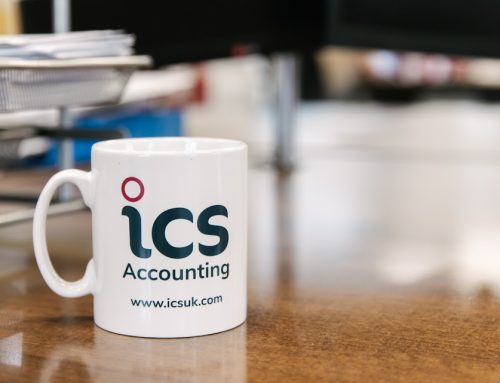When working on site as a contractor, there are almost always expenses incurred between your home and your temporary work site. If you meet the necessary requirements explained below, you may be entitled to claim these travel expenses back.
We’ve therefore put together a basic guide on the legislation surrounding contractor travel expenses and how to claim them. As always, your specific situation may vary from the below (and also per assignment you work on), so always confirm how you may be affected with a professional – but this guide may assist you in planning.
There are different factors when establishing if you are able to claim for expenses. Below are the most common scenarios you may find.
What is the 24 Month Rule?
From the perspective of HMRC, travelling to a temporary workplace is considered to be a business expense, where commuting to a permanent one is not.
There are two requirements that must both be met to define a permanent workplace, as opposed to a temporary one. These are:
- You must attend the workplace or be expected to attend it over a period of more than 24 months.
- You must spend or be likely to spend over 40% of your working time at the workplace.
Therefore if your assignment is for less than two years, you may be able to claim relief on your travel expenses. However, if your assignment was for eighteen months and you receive a twelve month extension (or at the point it is seen as 24 months), you cannot claim relief from that moment– at the point you know you will be expected to attend the workplace over more than 24 months.
If you have an assignment which does not have a fixed length, you may be able to claim tax relief so long as it is assumed the assignment will last for under 24 months.
Savvy contractors will already have noticed that if they are expected to divide their time equally between two sites in a assignment lasting for more than 24 months, so long as they spend at least 40% of their time at each of the two sites, both of those sites will count as permanent workplaces.
Working in two different offices within one larger site is not likely to be considered as a change in location.
What Can I Claim if My Workplace is Temporary?
If your workplace does not qualify as a permanent workplace, you are likely to be eligible to claim travel expenses. For contractors who are also directors of their own limited company, this ability allows you to reduce the tax liability of your company (by reducing taxable profits) and for you directly in your role as director (by reducing extraction via taxable dividends).
We’re often asked if this rule is affected by IR35, presumably because there is a logical connection that can be drawn between the ‘disguised employee’ concept IR35 was implemented to deal with and the ‘permanent workplace’ concept. These are however entirely distinct pieces of legislation.
Supervision, Direction and Control
The Finance Bill confirmed that tax relief on travel and subsistence would be removed for temporary workers that are subject to Supervision, Direction and Control (SDC) from April 2016.
To establish whether you are subject to (or to the right of) SDC, we will ask you a set of questions which looks at whether someone is telling you how to do your job, when to do it and whether you need to be supervised when doing so. If, based on your answers it would appear you are not subject to, or to the right of SDC we will then also need confirmation from your end-client of this decision. Without this, you will still be seen subject to SDC.
Client Billable Expenses
You may be informed by your agency or client that they have agreed to fully reimburse an expense you have occurred.
ICS are happy to process these for you; however it is important that we also receive a copy of the expense claim and receipt. This helps us demonstrate that the expense claim is legitimate, on a day you have worked and is needed for the performance of your assignment. If we do not receive this, the expense amount will be treated as income and is therefore subject to tax.
Multi-site Workers
Different rules apply to multi-site workers.
A multi-site worker is one where there is a reasonable expectation from the engager that they will have to work across multiple sites during the engagement, rather than being based at one site. Typically, a multi-site worker would not spend more than a maximum of 6 weeks at any one site (usually this would be much less).
Where the worker travels between different sites in the course of his/her duties, the associated mileage claims are reimbursable. This is due to it being classed as a temporary site.
In order to understand whether you are a genuine multi-site worker, you can complete a ‘multi-site assessment’. This will ask questions for us to identify if the locations you are attending are seen as a temporary workplace or if this becomes frequent, has a pattern or may be a permanent location.
We believe a workplace to be “frequent” as 40% on average, i.e. two days per week/eight days per month even if not regular days or a frequent pattern. In addition to this, we will also consider the 24 month rule, as this also highlights the workplace is not temporary.
Summary
One important factor to remember is that your circumstances regarding expenses may change from assignment to assignment. For example, you may work on one assignment and be subject to SDC (and not be able to claim travel expenses), however you may then start a new one and not be subject to SDC.
If in doubt, speak with a member of our team who will be able to advise you on a case-by-case basis.
All employees of our Umbrella Solution will be given a full expenses policy in which they must read the full guidance. This includes details around the 24-month rule, supervision, direction and control, multi-site workers and more.
We also check expense claims are legitimate, on a day you have worked and where needed get clarification from your agency/client in regard to the locations and days claimed. We require proof of the claim and receipts in order to remain fully compliant.
If you’d like more information about claiming travel expenses as a contractor or IR35 advice, please don’t hesitate to contact us for a more detailed discussion.



















